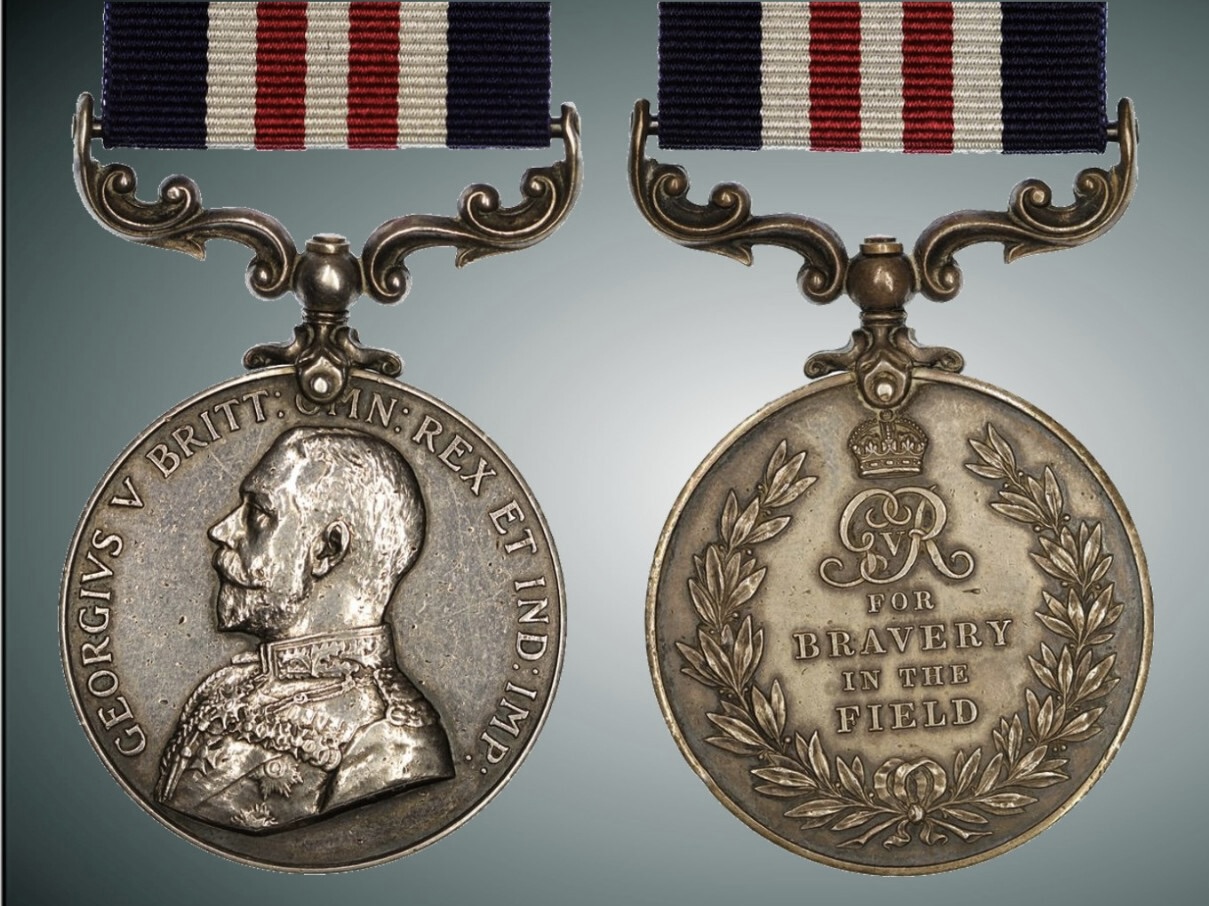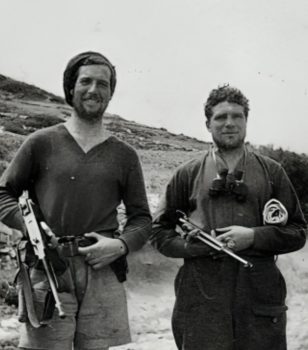Dick Holmes, on the left, and Duggie Pomford were both awarded the Military Medal while serving with the Special Boat Squadron during the Second World War.

In the early hours of 23 June 1943, the men of B and C Patrols of the SBS landed on the southern end of the island of Crete. Their task was to carry out raids on enemy airfields to coincide with Operation Husky, the Allied invasion of Sicily.
Dick Holmes and the three other men who made up B Patrol had paddled ashore in a dinghy from the motor launch that had transported them from Bardia the previous day. For two days and nights the patrols trudged across the brutal landscape, each man carrying rucksacks weighing between 70 and 80 lbs. On the third day, the patrols went their separate ways. Holmes and B Patrol, led by a young Cretan guide, headed north over the mountains to their target at Heraklion — a total journey of about 35 miles.
The approach march had been tough, and disappointment awaited them. The guide had gone forward to recce the target, only to return with the frustrating news that the airfield was no longer in use. However, all was not lost: he had identified an alternative target in the form of a large fuel dump, a few miles from where they were laid up.
At 2130 hrs on 4 July, the young guide, whom Holmes described as having “great skill and courage,” led them to the target. Within thirty yards of the dump, Dick Holmes went forward alone and found about fifty barrels of fuel.
Despite continual patrols by German sentries with guard dogs passing within thirty yards of him, he calmly removed Lewis bombs from his haversack, pressed down the time pencils, and placed them among the barrels before finally withdrawing. Within an hour of leaving the dump, 150 tons of exploding aviation fuel lit up the Cretan night.
Dick Holmes’ Military Medal citation states that he was responsible for two-thirds of the actual sabotage carried out on the fuel dump, and that the success of the attack “depended to a very great extent upon his keenness and determination.”

Duggie Pomford, who had already been awarded the Military Medal in recognition of his gallant and distinguished service in the field, received a Bar to his MM for distinguished conduct during operations against the enemy-held Greek islands of Ios, Amorgos, and Naxos.
On the night of 26 April 1944, Pomford was a sergeant in the SBS patrol that attacked an enemy post on the island of Ios in the Aegean Sea. In the battle that ensued, he personally accounted for two of the enemy, while the remaining three were captured.
The patrol then proceeded to the island of Amorgos and, five nights later, attacked a wireless station at Katapola Port. Pomford, a tough and talented amateur boxer, formed part of the assault party. Under the cover of heavy and accurate Bren gun fire, he was able to get within a few yards of the main door of the wireless station. From his position, throwing grenades and firing his submachine gun, he helped take out two enemy machine-gun positions.
As six of the enemy attempted to flee the building, they were immediately killed by the assault party. Pomford then went forward and entered the building alone to make sure no enemy soldiers remained inside. Given the all-clear by Pomford, the remainder of the SBS patrol entered the building and destroyed the electric generator before withdrawing, taking a wireless set, codes, and documents with them.
Three weeks later, during an attack on the German garrison on the island of Naxos, Duggie Pomford and the SBS were terrorising the enemy once again. Conducting himself with coolness and complete disregard for danger, he helped lead an assault in which fifteen enemy were killed without loss. The citation for the Bar to his Military Medal states that throughout all these operations “the determination, leadership and example he set was of the highest order.”
Dick Holmes MM and Duggie Pomford MM and Bar both survived the war. Dick Holmes qualified as a teacher and moved to Canada in 1966 and is believed to have lived until he was 98 years old.
Duggie Pomford continued his love of boxing and was a key figure in the founding of the Golden Gloves Amateur Boxing Club in Dingle, Liverpool, where he was involved as a trainer and secretary from its inception until his untimely death, aged 49, in 1969.


